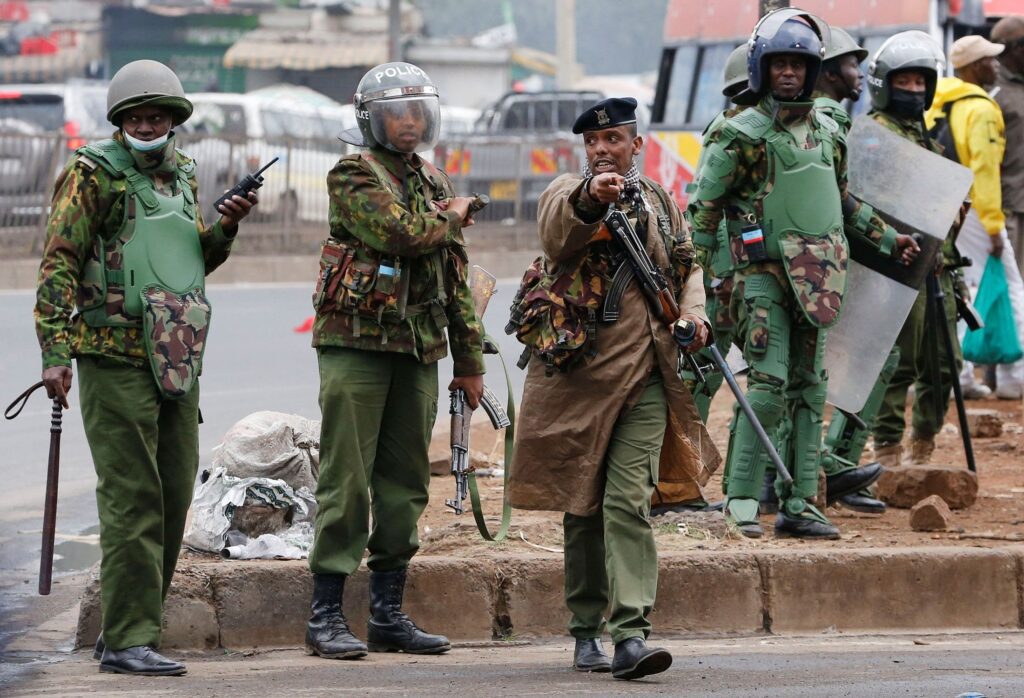
Nairobi Region Police Commander Adamson Bungei has firmly stated that no protests will be allowed in Nairobi today. According to Bungei, the police received no valid applications for any gathering or picketing permits as required by law.
Invalid Protest Permit
Bungei revealed that they received a faulty document dated June of last year, which failed to meet the necessary criteria for protest permission. The police commander stressed that this document does not authorize any protest activities.
Immediate Dispersal of Gatherings
In an interview with Citizen Digital, Bungei disclosed that they have mobilized police officers to ensure the immediate dispersal of any gatherings in the Central Business District (CBD). The police aim to maintain order and prevent unauthorized assemblies.
Activists Plan Protests
Despite the police’s firm stance, activists, led by Boniface Mwangi, have announced detailed plans for a protest. The event, called ‘Occupy Parliament,’ targets the Finance Bill 2024, which has stirred significant public discontent.
Legal Requirements for Protests
Under Kenyan law, organizers must apply for permits to hold protests. These permits are essential to ensure that the police can provide security and manage traffic during the demonstrations. However, in this case, no valid permit has been issued, making any planned protests illegal.
Police Preparedness
The Nairobi police have prepared extensively for any eventualities. Officers have been strategically deployed across the CBD to quickly respond to any signs of protest. The police will use their authority to enforce the law and ensure public safety.
The Role of Police in Public Order
The police play a crucial role in maintaining public order. By requiring permits for protests, they aim to balance the right to peaceful assembly with the need to protect public safety and prevent disorder. The current situation underscores the importance of adhering to these legal requirements.
Public Reactions
The announcement by the police has elicited mixed reactions from the public. Some support the police’s decision, citing the need for order and security. Others, however, feel that the police are infringing on their right to peaceful protest.
Historical Context of Protests in Nairobi
Nairobi has a history of vibrant protests, often driven by political, economic, and social issues. The city’s residents have used protests as a tool to voice their grievances and demand accountability from their leaders. However, these protests have sometimes resulted in clashes with the police.
‘Occupy Parliament’ Protest Plans
The ‘Occupy Parliament’ protest, organized by activist Boniface Mwangi, aims to challenge the Finance Bill 2024. Mwangi and his supporters argue that the bill will negatively impact ordinary Kenyans. They have called on citizens to join the protest and demand changes to the bill.
Police and Activists at Odds
The confrontation between the police and activists highlights the ongoing tension between maintaining public order and upholding the right to protest. While the police emphasize the need for legal permits, activists argue that their grievances justify public demonstrations.
Potential Impact on Nairobi CBD
The potential protests in the CBD could disrupt business activities and traffic. The police are keen to prevent such disruptions and ensure that the city’s economic activities continue smoothly. Their preparations include setting up checkpoints and monitoring key areas.
Importance of Dialogue
Some observers believe that dialogue between the police and protest organizers could help resolve the situation. By engaging in constructive discussions, both sides could find a way to allow peaceful protests while maintaining public order.
Future of Protests in Nairobi
The outcome of today’s events could set a precedent for future protests in Nairobi. If the police successfully prevent unauthorized protests, it may deter similar activities in the future. Conversely, if activists manage to gather despite the restrictions, it could embolden other groups to organize protests.
Government’s Stance
The government has not yet commented on the police’s announcement. However, their stance on protests and public gatherings will be closely watched. Any government response could influence public opinion and the actions of both the police and activists.
Conclusion
The situation in Nairobi today underscores the complex dynamics between the right to protest and the need for public order. Police Commander Adamson Bungei’s firm stance reflects a commitment to enforcing the law. However, the determination of activists like Boniface Mwangi highlights the ongoing struggle for civic space and public expression. The developments in the CBD will be a critical test of these competing interests.



